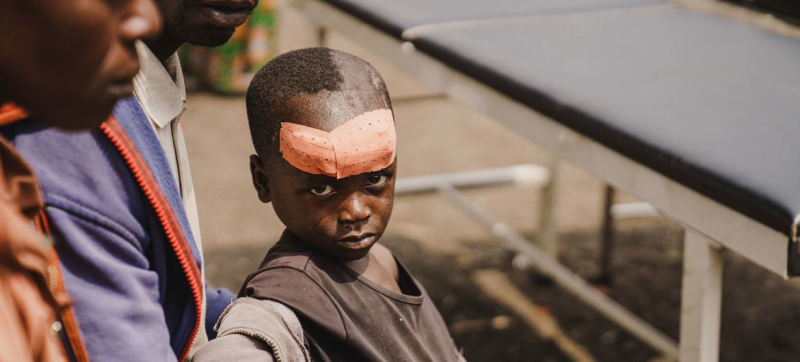- Khaleda now not fit for travelling: Medical Board |
- Panchagarh records lowest temperature 10.5°C so far this year |
- Christmas returns to Bethlehem after two years of Gaza war |
- কলাপাড়া মুক্ত দিবসে এবার সাড়া নেই কার |
- One killed, two injured in attack at Ctg meeting over marriage |
Funding Crisis Halts Aid for DR Congo Sexual Violence Victims

A young boy was injured while fleeing clashes at a site for displaced people in North Kivu province in the eastern Democratic Republic of the Congo.
Sexual violence remains rampant in eastern Democratic Republic of the Congo (DRC), but urgently needed assistance for survivors has been suspended due to sweeping funding cuts, the UN human rights office (OHCHR) warned on Friday.
The severe liquidity crisis currently affecting the UN and its global partners has already prevented the launch of a high-level human rights probe into the DRC emergency, mandated in February.
According to testimonies gathered by OHCHR investigators, members of the Rwanda-backed M23 rebel paramilitary group “systematically” committed widespread sexual violence in North and South Kivu since January, including gang rape and sexual slavery.
As M23 fighters captured major cities, including Goma, “women and girls were disproportionately targeted,” OHCHR spokesperson Ravina Shamdasani said, referring to a Fact-Finding Mission report submitted to the Human Rights Council. She stressed, however, that “men, boys, and LGBT individuals were also victims of sexual violence, including in detention.”
The report also documented the failure of all parties to adequately protect civilians, particularly during the takeover of Goma by M23 and the Rwandan Defence Forces (RDF), as well as attacks on schools and hospitals.
Fact-finding investigations revealed that hundreds of children were detained by M23 members this year, with many forcibly recruited to fight against government forces, the FARDC. Many detainees, mostly able-bodied men and boys aged 15 and older, were loaded into trucks and taken away. Relatives searching for loved ones were often threatened or beaten.
The report was intended to serve as the basis for a possible war crimes probe by a Commission of Inquiry created in February. However, the funding crisis has left the panel unable to carry out its mandate.
The UN High Commissioner for Human Rights, Volker Türk, expressed frustration over the lack of accountability and support for victims in the peace agreement signed between the DRC and Rwanda on 27 June. “It is heartbreaking and deeply frustrating to witness, once again, the dehumanisation of the civilian population by those in power,” he said, urging swift action to establish the Commission of Inquiry.
OHCHR confirmed that gross human rights violations and breaches of international humanitarian law were committed by all parties to the conflict – including M23, the Rwandan Defence Forces, the Congolese Armed Forces, and affiliated groups. These included summary executions, torture, enforced disappearances, and forced recruitment.
Rapes were often prolonged and accompanied by physical and psychological torture, aimed at degrading and breaking victims’ dignity. Children were also severely affected, with hundreds detained and forcibly recruited.
The report found evidence of grave violations by FARDC forces and affiliated groups such as the Wazalendo, including civilian killings, looting, and widespread sexual violence during retreats from the frontlines. It also concluded that both DRC and Rwanda bear responsibility for supporting armed groups with known records of abuses.
The UN human rights office continues to support victims of sexual and gender-based violence, provide technical assistance to governments, and engage community leaders to challenge harmful gender norms, early marriage, and female genital mutilation.

